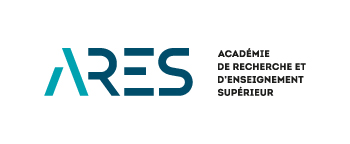In the last two decades, most of higher education institutions leaders, professors, researchers and other stakeholders have invested a lot of efforts and resources in making their institutions more internationalised. However, beyond the “buzzword”, what lessons can we learn and what perspectives can we identify? And ultimately is internationalisation of higher education here to stay?
The working language will be English only.
Ministers, policy-makers, rectors, HEIs leaders, professors, researchers, students, employers: all are necessarily interested in the internationalisation of higher education. However, it is important to remind ourselves that it remains a quite recent phenomenon that has been growing rapidly under different dynamics and rationales.
Not so long ago, internationalisation was generally perceived as “secondary” or “optional” within the strategy of an HEI. International activities were limited to student mobility, international recruitment, promotion and reputation abroad. However, with the Bologna Process and other regionalisation dynamics, with the development of new technologies, with the massification in higher education and more generally with the globalisation of our societies, internationalisation has become essential for most higher education institutions.
Internationalisation is today a broad and diversified phenomenon that might lead us to discuss about internationalisations (in plural) or processes of internationalisation. Scholars have proposed various definitions to this polysemous concept, underlining the dynamic aspect of internationalisation, its contribution to enhancing quality of higher education, the absence of a “one-fits-all” model, etc.
Recent research suggests that internationalisation is too often perceived as an end while it should be viewed as a means to reach specific objectives. Other also argues that internationalisation is coming to an end as it has become a “traditional” feature of every institution, calling thus for a “postinternationalisation age”.
What are the regional and global trends for internationalisation of higher education? What are the perspectives? How can higher education institutions of Wallonia-Brussels engage in a dynamic process of internationalisation?
Prof. Dr. Hans de Wit will share his scientific expertise on the internationalisation of higher education and present the main results of its recent works, including the report to the European Parliament on the internationalisation of higher education.
His presentation will be followed by Q&As and a panel discussion with representatives European organisations and higher education institutions of Wallonia-Brussels.
Recommended readings in preparation of the Midi de l’ARES:
- BRANDENBURG, U., DE WIT, H., The End of Internationalization. International Higher Education, 2011, n° 62, p. 15-17.
- DE WIT, H., Internationalization of Higher Education: Nine Misconceptions. International Higher Education, 2011, n° 64, p. 6-7.
- DE WIT, H., HUNTER, F., HOWARD, L., EGRON-POLAK, E., Internationalisation of higher education – study, Policy Department B: Structural and Cohesion Policies, European Parliament, 2015.
- HUDZIK, J.K., Comprehensive internationalization. Institutional pathways to success, New York : Routledge, 2015.
- KNIGHT, J., Five myths about internationalization. International Higher Education, 2011, n° 62, p. 14-15.
RESOURCES :
"Internationalisation of higher education: is it the end, an end or… the (re-)beginning?" - Hans de Wit (PDF - 886 Ko)
The working language will be English only.
Qui ?
Prof. Dr. Hans de Wit
Director of the Center for International Higher Education, Lynch School of Education, Boston College, USA
Quand ?
Lundi 2 mai 2016, dès 11h30
Fin à 14h00
11h30 : accueil des participants – sandwiches lunch
12h00 : introduction par Kevin Guillaume, directeur des Relations internationales à l'ARES
12h30 : débat avec les intervenants
Échange avec les participants
Quoi ?
Les Midis de l'ARES sont des conférences-débats organisées à l'ARES à l'heure du déjeuner (Bruxelles, 12h-14h) autour de questions liées à l'enseignement supérieur, à son internationalisation, à la coopération académique au développement, etc. Structurés autour de l'intervention d'un expert ou de plusieurs panélistes, les Midis de l'ARES sont conçus comme un espace de valorisation d'initiatives ou de travaux de recherche, de réflexion et d'échange constructif entre tous les acteurs intéressés par les questions abordées, qu'ils soient académiques, chercheurs, étudiants, issus des ONG, du monde politique ou de l'entreprise...
Où?
ARES, rue Royale 180 (5e étage) à 1000 Bruxelles
Image : Designed by Freepik


